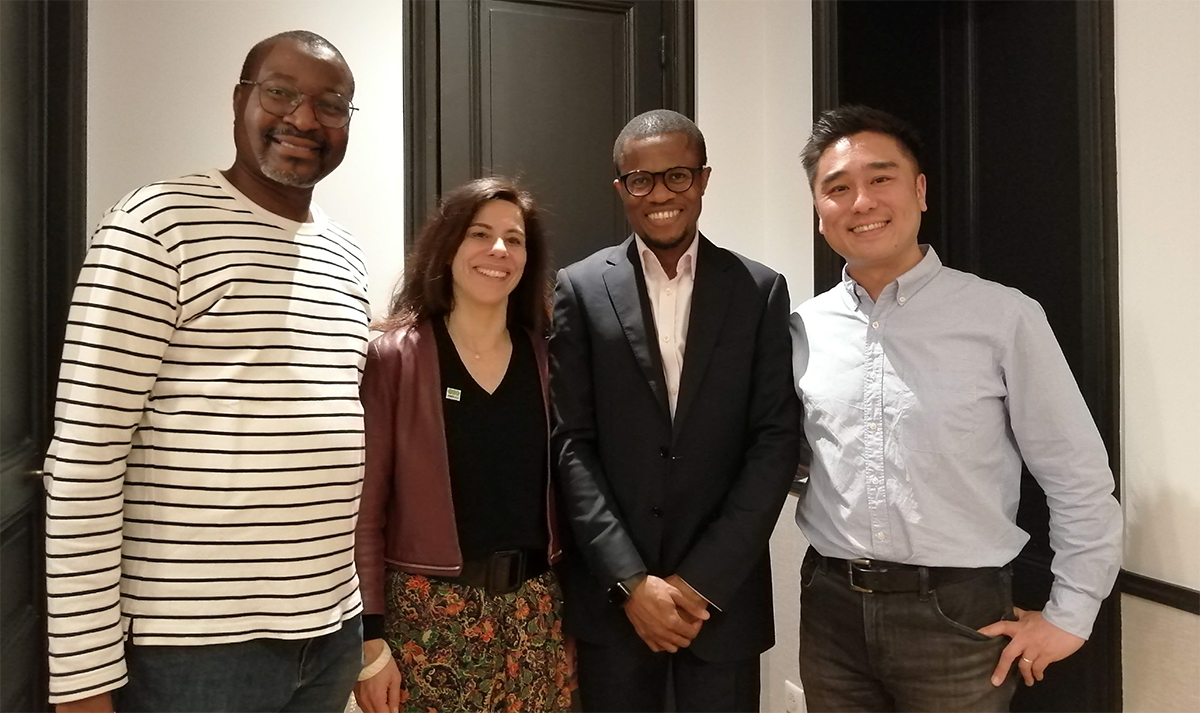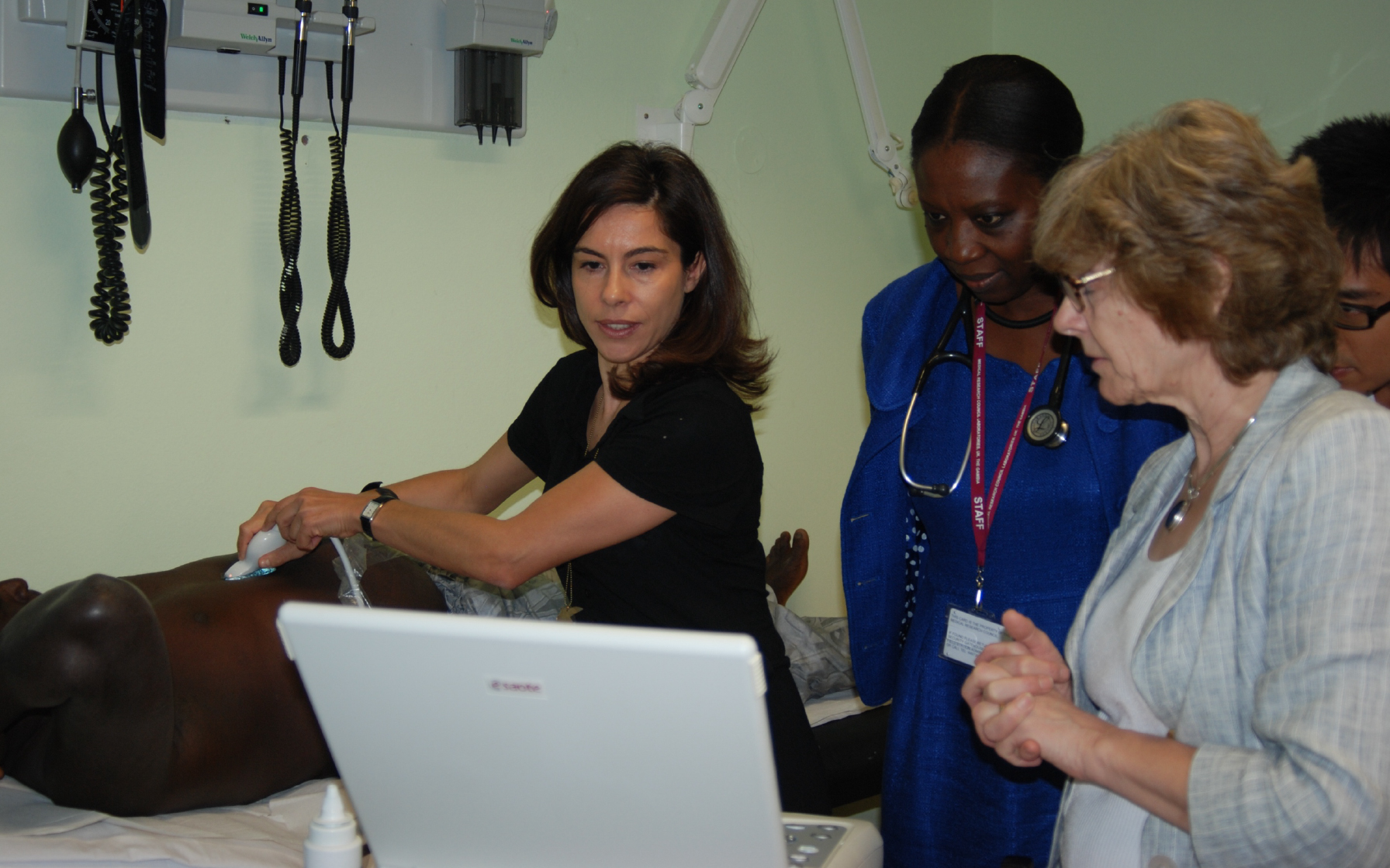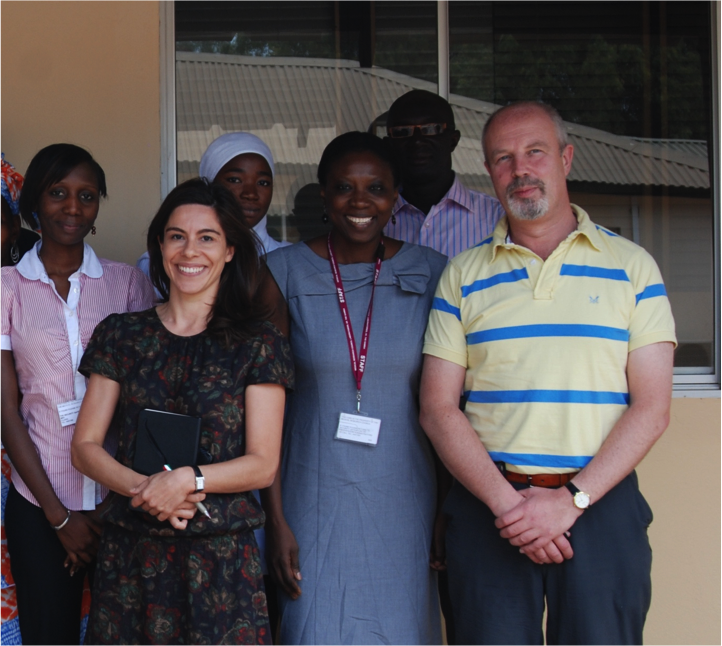
On the national day of France—known as ‘Bastille Day’ in English—we hear from Prof Maud Lemoine, Professor and Honorary Consultant in Hepatology at Imperial’s Department of Metabolism, Digestion and Reproduction. She completed her medical degree and PhD in Paris, France, before working in The Gambia, and then the UK
What brought you to London, and Imperial?
Initially I came a bit by chance. I was working in a teaching hospital in Paris as a full-time clinical consultant, having completed a PhD in physiopathology of non-alcoholic fatty liver disease. I wanted to work abroad and was very interested in working on viral hepatitis and liver cancer in sub-Saharan Africa. I wanted to work in a non-French speaking environment and meet other cultures. In 2011, by chance, I met Prof Mark Thursz who gave me the opportunity to join his team. I spent about 2 years and a half in The Gambia where I implemented a very ambitious research programme on liver diseases in West Africa. Then, in 2014, I moved to London. I hadn’t planned to move to London, but then I discovered a different culture—where I was given so many more opportunities than I’d have in the French system. I was extremely motivated but more importantly I felt really supported by Imperial and my department to develop my ambitions and create my own research group. I do still miss the French system from which I have learnt a lot.
I was initially going to spend a year or two as a lecturer at Imperial, but then I secured more funding to expand my research activities and really enjoyed the work environment and its management based on trust and creativity—especially as it’s much more diverse here. There are so many different nationalities represented in our department, it’s really nice.

What makes Imperial College London special?
In my experience, the UK really works to provide opportunities. I arrived in my mid-thirties, not trained in the English system at all, and it was difficult, especially in the clinical areas, (priorities and guidelines can be quite different from the French system). Also, It felt hard to express precisely my thoughts, and I was worried about how I came across, with my accent and background. But people were really nice—everyone in my department welcomed me in and felt really supported by our Head of Department, Mark (Thursz).
The system here identifies gaps and looks to fill them, so the institution and individuals all benefit.
While there are lots of fantastic things about Imperial, I would like the organisation to do even more to make education and science more accessible to people from all backgrounds. The biggest brains come from every walk of life. It’s also important that we don’t only focus on research that bring in the most money; we must also pay attention to the deep research questions and their real impacts. Sometimes, Imperial may give the impression that everything is money first, leaving behind the real reasons for research and teaching.
What are you most proud of during your time at Imperial?
I am proud to have been able to adjust to a system I really didn’t know, at a slighter older age. I’m proud to have been able to secure UK grants, in a new language, in a totally different system to what I knew in France. When I asked for help, so many people did, which I think makes Imperial a special place.

But, I am more proud to have been able to create and maintain a very diverse research group including people with different background and cultures, and more importantly I am happy to learn from them and to train more junior researchers from Africa, UK or elsewhere.
As a woman, I also feel it has really been possible for me to succeed. When I became pregnant, I was worried from my experiences in France years ago. During years in France most women at work were scared to disclose their pregnancy to their boss risking to lose their jobs. I took six months of parental leave (in France we usually take three months…), and the department never made me feel like I had to rush back. No institution is perfect, but I felt welcomed by the team and the institution. I don’t think every European institution supports people like this.
What can French and British cultures learn from each other?
The French revolution has marked the French culture. In France there is always a wind of revolution, which generates controversial feelings in the UK. But even if the French revolution generated fears and tensions among the English society, we often forget that it was also a source of great inspiration for English people, poets and writers.
From a French angle, people are perceived as much less direct in England than in France; more ‘polite’, but sometimes it’s important to (really) speak your mind—something that perhaps English people could learn from the French! I bring some of those French aspects to the way I work—I am always happy to hear from people speaking directly, even if they’re unhappy. Though if you ask some of my French colleagues, they might say I’ve become very British! It’s nice, though, because I think I’ve personally improved as a person with the influence of British culture.
I love London and the British culture —the pubs, the museums, the music—and it’s so much more diverse than Paris. At first, I thought it was too big, too cold but now I love it. You can always find a quiet place when you need it.
I’ve remained extremely attached to the French culture, too. I still listen to the French equivalent of the BBC every morning to stay in touch. And Paris is only two hours away, so I joke with friends that I still live in a Parisian suburb called London!
What do you think makes the Anglo-French relationship special?
The Anglo-French relationship is full of contradictions for many years. But French people have a lot of admiration for British people, and I believe the Second World War helped to reinforce the relationship between the two countries. French people admire the politeness and calm of the British, but can be confused by it on some topics—like protest or the monarchy—where we can be very different.
Brexit has been a real shame, but science, culture, and literature can help rebuild relationships.
At Imperial, I feel empowered to create opportunities to work with French institutions. There’s a real willingness to collaborate.
What advice would you give to anyone thinking of moving from France to study or work in London?
I would really encourage them to make a real effort to meet people, and stay in touch with them. You can learn so much from other people’s experiences, and that has helped me a lot. A beauty of being a foreigner is that you don’t initially fully understand the system, so you have to observe more and pay real attention. I would tell people to be prepared to find it difficult at times, but to just do it—it’s a great opportunity to open your mind.
Prof Maud Lemoine is Professor and Honorary Consultant in Hepatology at Imperial’s Department of Metabolism, Digestion and Reproduction
Read more at Celebrating Imperial’s French connections on Bastille Day